Can sport heal the wounds of war?
Nearly 10 years on from the end of its brutal civil conflict, Sri Lanka remains divided by political turmoil – and, as Ed Malyon discovers, there is currently little consolation to be found on the cricket field
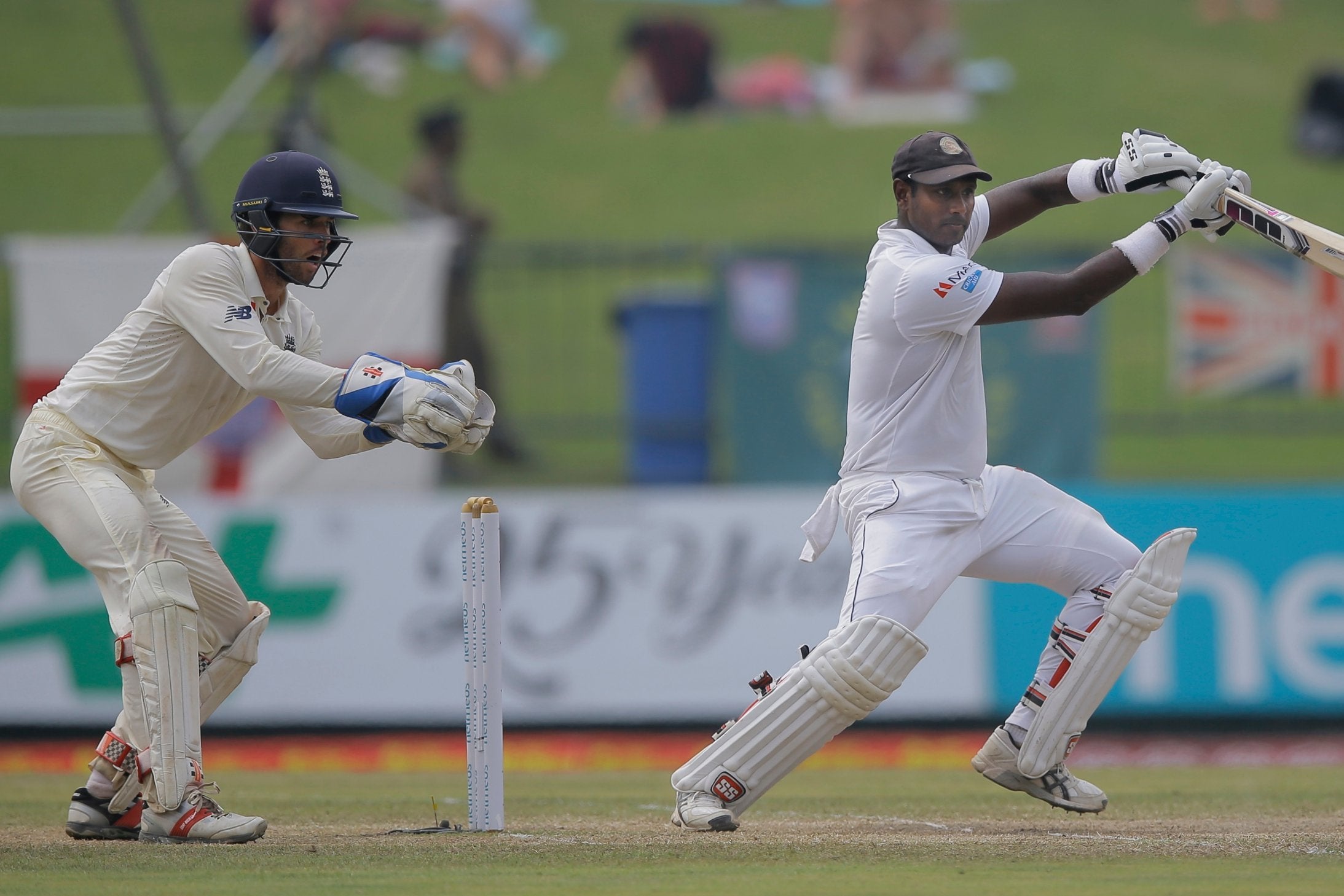
Sometimes on your travels, there are conversations that really stick with you. In Sri Lanka, having witnessed the first Test series win for an England cricket team on this island in 17 years, it was one of my final conversations with a local that I simply couldn’t shake.
When travelling for work I make a habit of talking to taxi drivers, hoteliers, anyone local really. Individuals seem to appreciate you taking an interest in their country and while the views you hear tend to vary wildly across a broad scale, when you gather them all together at the end you begin to build a picture of what people (in this case Sri Lankans) feel about their country. Arriving for the beginning of a Test series on this beautiful island, a teardrop falling from the Asian subcontinent and into the Indian Ocean, you wouldn’t have known that the headlines internationally were of a political crisis.
“If we take it out to the streets, there will be a huge bloodbath,” warned the speaker of the house after president Maithripala Sirisena ousted prime minister Ranil Wickremesinghe – in a move later deemed unconstitutional – and installed his predecessor Mahinda Rajapaksa. What followed over the coming weeks was political manoeuvring, claim and counterclaim. Wickremesinghe refused to leave the prime ministerial residence of Temple Trees, a colonial-era building once owned by the head of the Cinnamon Department of Ceylon but which was now harbouring a political leader at the centre of a storm.
Sirisena had formerly been a running mate of Rajapaksa, only to turn his back on him ahead of the 2015 election, and now he was metaphorically back in bed with his former ally-turned-foe. They searched for the votes to try to oust Wickremesinghe through parliamentary means – but when they couldn’t get them, the president simply dissolved the house.
By now, you’ve probably seen the video of Sri Lankan politicians fighting in parliament. The unsavoury scenes shamed a nation of humble people. So back to that conversation, then. Or the start of it, for now.
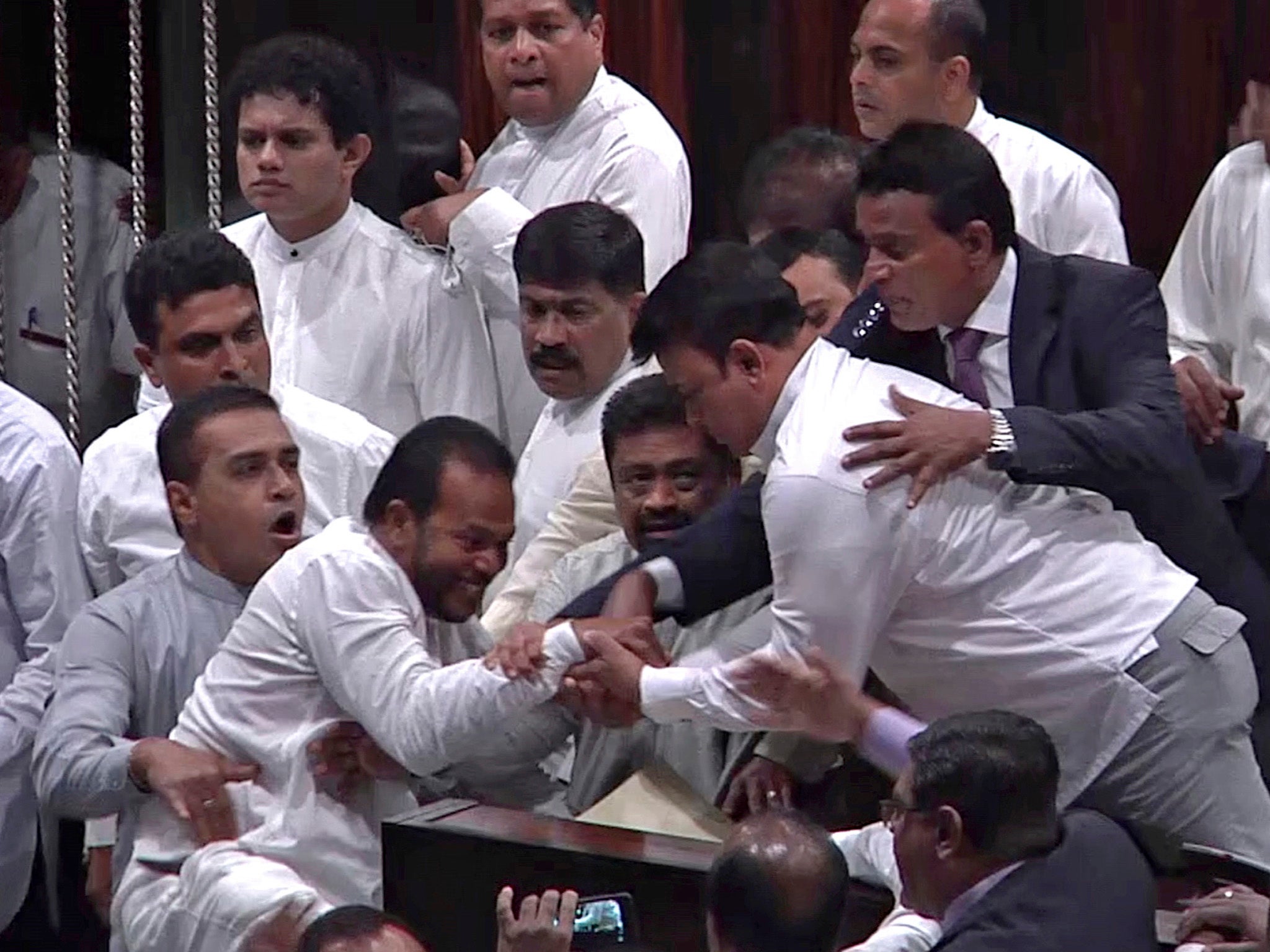
“We have had the bad politicians all of my life,” said Manoj, in this instance driving me to the airport amid the sort of electrical storm that has you looking at your boarding pass and quivering at the thought of air travel. “We just have to carry on as normal.”
* * *
Following the victory at Pallekele Stadium last Sunday that sealed the series, England returned to Colombo on Monday and to the lavish surroundings of the Shangri-La Hotel in the upmarket Galle Face neighbourhood of the capital. The establishment opened only last November and the players are fairly unanimous in saying it might be the nicest resort they have stayed in on any tour. But last time England’s cricket team won a Test series here, in place of the pristine lawns and infinity pools of the present were barbed wire and tanks.
Sri Lanka is not yet a decade removed from the end of its brutal civil war. The scars of that conflict pervade every facet of public life – even on the eve of the series, when the country’s still-ongoing political crisis was sparked by Rajapaksa’s return.
Rajapaksa was a typical strongman leader. It is clear when you talk to Sri Lankans that he still commands respect for presiding over the end of the island’s civil conflict. There are, however, serious allegations that government forces, over whom his brother held command at the time, committed war crimes and the murder of approximately 40,000 Tamils during the dying embers of the war. The government has always denied the claims.
“He is a strong leader, good leader,” Sarath, a hotel owner from Kandy tells me. “He ended the war and he did many good things. We liked Wickremesinghe’s ideas, but his promises did not come true.”
The idea of a “strongman” leader is a dominant global theme of our times and indeed it seems very popular in Asian politics and particularly here on the subcontinent. There is a feeling implied in conversations with locals, sometimes even expressed outright, that they would tolerate the corruption and concentration of power in ever-smaller circles if a political leader can get things done. That certainly appears to be the prevalent view of Rajapaksa, and it is an image he attempts to reinforce at every opportunity.
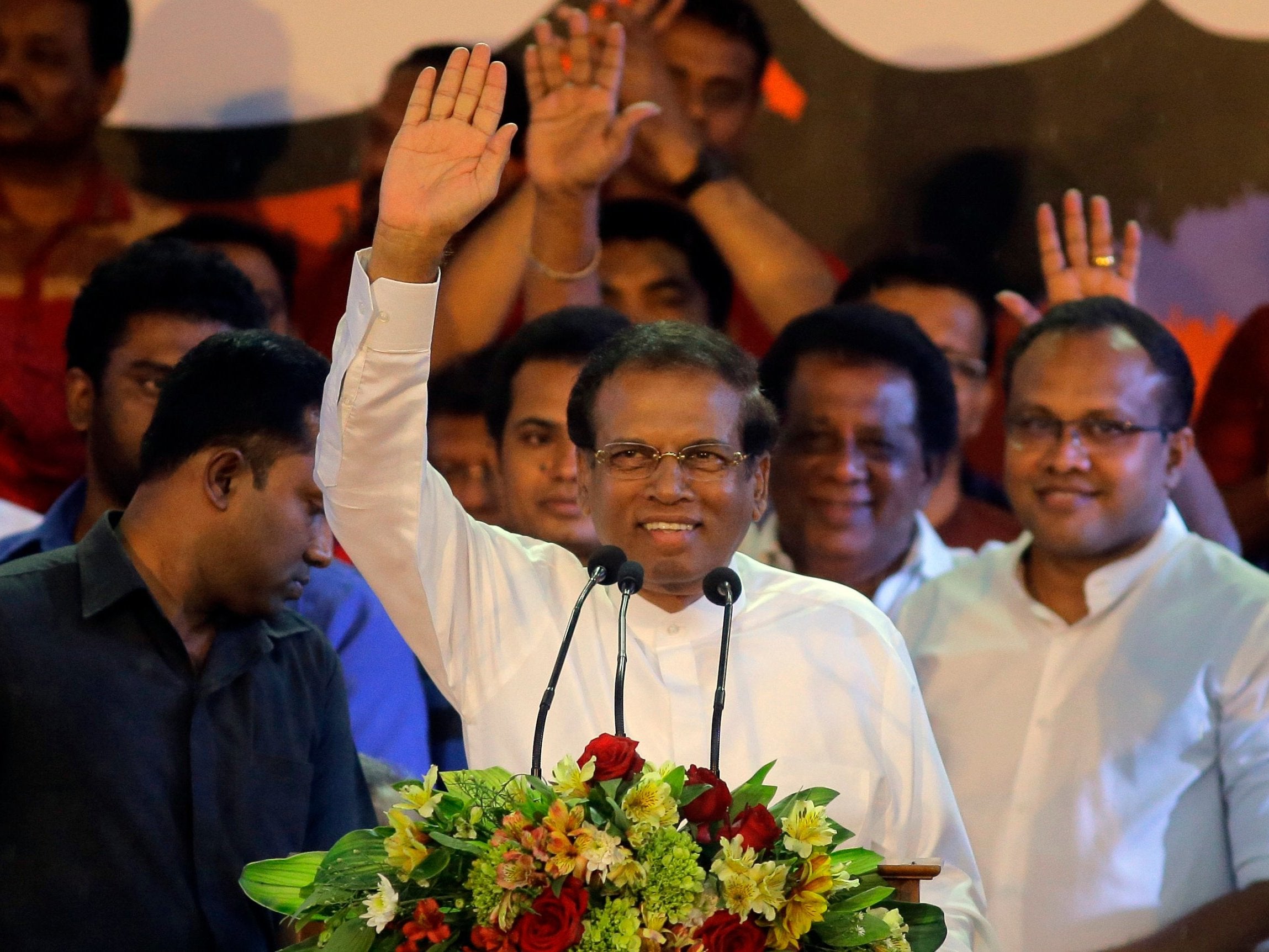
Part of the trouble for the present government, which President Sirisena publicly claimed he was looking to resolve, relates to a controversial sale of bonds by the central bank, which is understood to have cost the nation in excess of $65m (£50m).
“Wickremesinghe was good but there was a big bank robbery,” says Kumar, a restaurateur in Galle, in reference to the bonds scandal. “He is the man of the west and Rajapaksa is of China.”
That divide is significant. It is impossible to drive around Colombo without noticing the amount of infrastructure projects that proudly boast of being driven by foreign capital. China, in particular, has looked to assert itself in subcontinental Asia by building docks and highways in Pakistan and Bangladesh, and it is heavily involved in Sri Lanka too. Concerns over Rajapaksa’s links to China, and the debts he was racking up, persist; but while America progressively isolates itself further from the world, China’s influence continues to grow.
Driving south from Colombo to Galle for the first Test, the political uncertainty was starting to tank the rupee. The influx of thousands of English tourists flocking to the country, and particularly the resort of Galle, were a welcome boost to a tourist industry beginning to be hit by cancellations as news of the political situation spread around the globe just ahead of peak season.

Galle is the perfect venue for a Test match, with a bounty of hotels stretched around the island’s southern coastline and a historic fort looming over the country’s most picturesque cricket ground. This particular match was to be a celebration of Sri Lankan cricket, with Rangana Herath taking the unusual step of playing only in the first Test of the three-match series before retiring. The request had been made so he could begin and end his career on the ground where he took over 100 Test wickets.
The 40-year-old retired from cricket as the most prolific left-arm bowler of all time, and his departure actually told us a lot about the state of Sri Lankan cricket in the present.
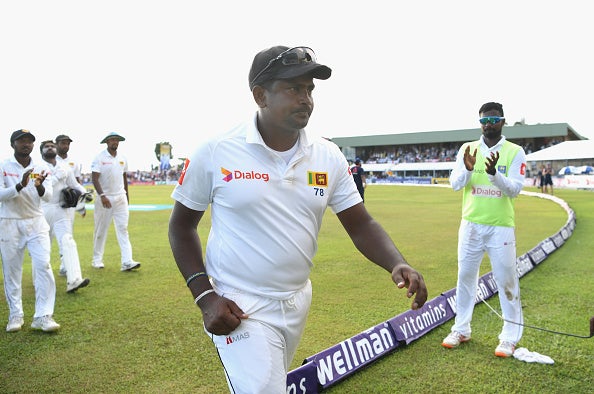
After a Test where England dominated virtually the entire match after a wobbly first session, Herath was gone and what he left behind was a Sri Lankan team with virtually no recognisable names to the average international fan. The stars, if Herath himself was still one, have gone now.
For the first time in at least two decades, Sri Lanka doesn’t boast any Test player you could safely describe as being in the best 10 players at their role. Muttiah Muralitharan, Lasith Malinga, Chaminda Vaas, Kumar Sangakkara, Mahela Jayawardene... this has been a nation of standout players and the list goes on but the bloodline doesn’t. Not for now, at least.
* * *
Before the series had even begun, tumult had already struck the Sri Lankan camp. Promising seam bowler Lahiru Kumara, who had been the hosts’ best player during the warmups in Colombo, had been expelled from the squad for breaking a curfew. During the series they would lose spinner Akila Dananjaya, reported for bowling with a suspect action, as well as captain Dinesh Chandimal, who picked up an injury in the first Test.
Off the field, the world of Sri Lankan cricket wasn’t in much better shape. Former captain, opening batsman, World Cup winner and chairman of selectors Sanath Jayasuriya was charged by the ICC with match-fixing offences as the tour began.
Jayasuriya is alleged to have broken the International Cricket Council’s anti-corruption code after a long investigation into match-fixing. The former opening batsman is accused of “failure or refusal to cooperate” with the ICC investigation as well as “concealing, tampering with or destroying documentation”.
Jayasuriya, who denies match-fixing, has also dabbled in politics. Indeed, the world of cricket governance, in a country as mad about the sport as this, and the corridors of governmental power seem curiously, excessively intertwined.
As if to prove the point, as the crisis triggered by Sirisena flared, another former Sri Lankan captain and World Cup winner Arjuna Ranatunga was arrested in connection with an incident in which his bodyguard shot and killed a protester. He was subsequently released on bail, and explained that his security detail had been acting to defend him from a mob.
Ranatunga – once a humble cricketer – had just been dismissed as oil minister when President Sirisena sacked the entire cabinet. To add to the turmoil within the Sri Lankan cricket board, bowling coach Nuwan Zoysa was charged by the ICC with three counts of anti-corruption breaches including “fixing or contriving” aspects of an international match.
The team’s general manager Charith Senanayake then resigned between the first and second Test matches after falling out with head coach Chandika Hathurusingha. When it rains in Sri Lankan cricket, it pours. And owing to the sheer number of international matches to fit into the annual programme these days, this series had been scheduled in monsoon season.
* * *
If England’s win in the first Test at Galle was pretty simple, the victory at Pallekele Stadium, on the outskirts of Kandy, was a tense humdinger. Playing three spinners and a flexible batting attack, Joe Root’s new-look side went into the fifth day of the Test needing three wickets to win. Sri Lanka needed just 75 runs.
What had promised to be a wild crescendo after four days of brilliant play would eventually unfold in far simpler fashion. Moeen Ali took two quick wickets before Jack Leach cleared up the tail by taking out Malinda Pushpakumara with a simple caught and bowled chance.
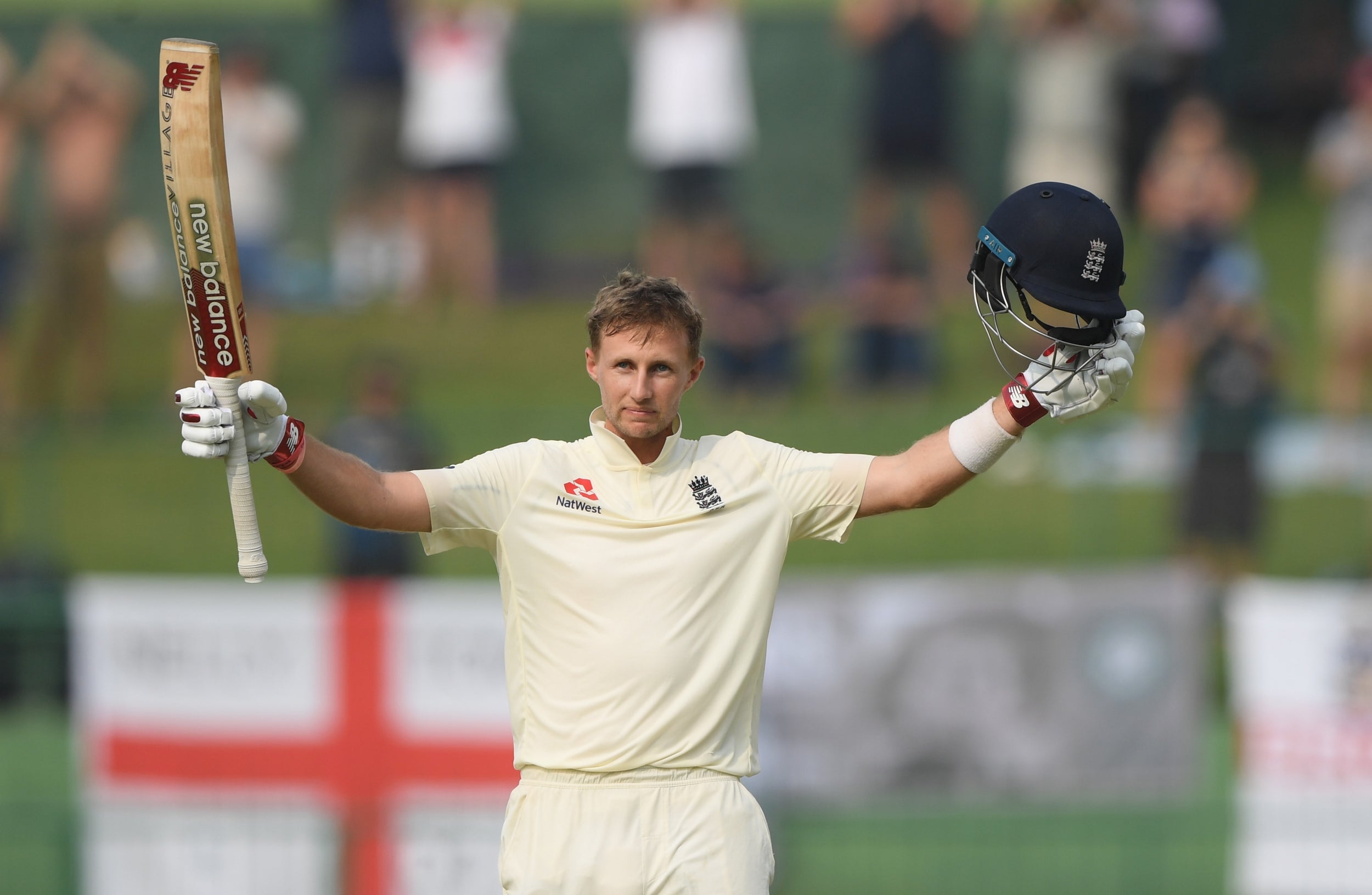
England were victorious and Sri Lanka a little bereft. They had been outplayed for eight of the nine days of Test cricket England had needed to secure the series and had rarely looked like having the discipline or talent to fight back against what is now the world’s second-best team in Tests. While the tourists’ usual travel sickness meant this was a significant result for Root and his team – having not won overseas in nearly three years, on the subcontinent for six or in Sri Lanka for 17 – it was also a humbling defeat for the hosts.
Sri Lanka had beaten Australia, South Africa and the West Indies by a combined score of 7-0 at home in the past three years. This latest series should have been a contest but rarely looked like it. Amid the backdrop of all that political turmoil (in parliament and around the team), bereft of the star names that have punctuated their squad lists for decades, there was little to be optimistic about.
* * *
And so back to the rain-soaked highway en route to the airport. As the looming, steel grey sky periodically flashed with lightning and the rain began to form streams on the road, cars turned their hazard lights on. Owing to the capital city’s horrendous traffic and some poor timing on my part, the journey out of Colombo had taken more than an hour already and conversation with Manoj had got rather deeper than expected.
The politicians are no good, but if we win in Colombo I’ll be happy
We talked about the political crisis; he told me about his brother who had been shot in 1989 by the army for being in the wrong place at the right time – he was in his twenties. Manoj told me about his son, who died 18 months ago, aged 11, from dengue fever. The hospitals, he said, simply can’t cope. Manoj asked me what it was like to go on a plane. “I have never flown,” he said. “I have never left Sri Lanka.”
While covering the Test series, and reading about and talking to people about the political crisis, it had occurred to me that the island has parallel tracks: there is the elite, those wrestling for power and influence in white-washed colonial buildings; and then there are those normal Sri Lankans whose everyday existence is being affected by the tanking rupee, tourists cancelling their visits and the central bank having a substantial financial hole that nobody can explain.
Manoj was happy to talk about the politics and explain things, but after we had come to the glum conclusion of nobody knowing what would happen next, he said something which surprised me. “The politicians are no good, but if we win in Colombo I will be happy.”
It wasn’t a moment that demonstrated the power of cricket, particularly, but perhaps the escapism of sport. In Sri Lanka, there is only one sport that matters and even in a dead rubber of a series long lost, there were people looking for a small victory to bring some cheer. “My son loved cricket,” he added. “I would have taken him to this match.”
There is not much you can say in response to that. A sadness that lingers long in the memory. When cricket suddenly seems to mean very little, yet to some it would mean the world.
Join our commenting forum
Join thought-provoking conversations, follow other Independent readers and see their replies
Comments